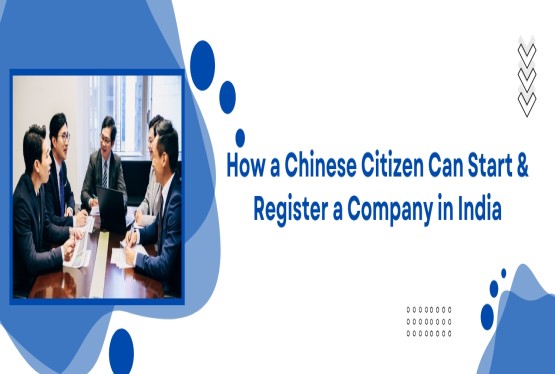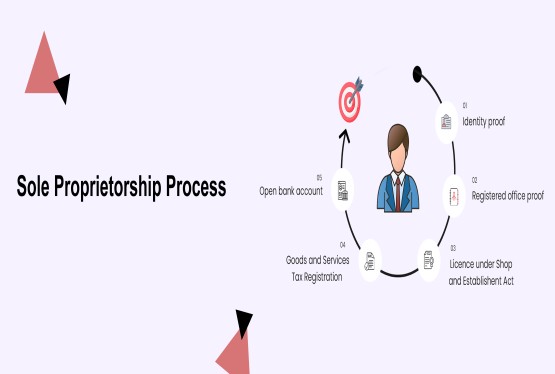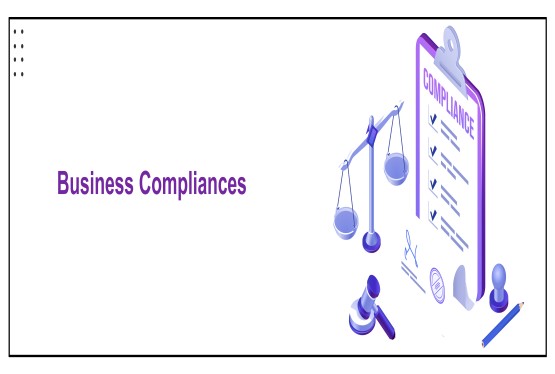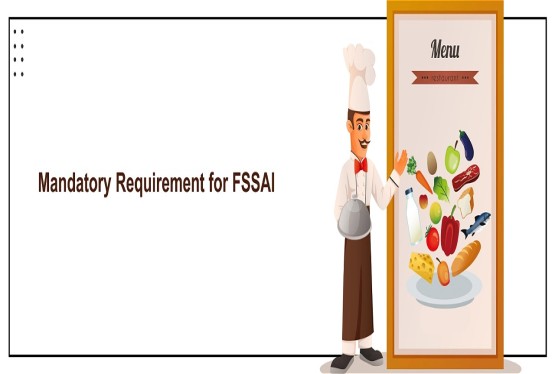India has always been synonymous with spices, with its rich variety and aroma attracting traders from across the globe for centuries. To regulate and promote the export of these prized commodities, the Government of India established the Spice Board of India under the Spice Board Act, 1986, which came into force on 26th February 1987. Operating under the Ministry of Commerce & Industry, the Board oversees the development and export of 52 scheduled spices, including cardamom, pepper, turmeric, cumin, clove, and many more. For anyone engaged in the export of these spices whether as a manufacturer or merchant Spice Board Registration is mandatory. This registration not only ensures compliance with government regulations but also strengthens an exporter’s credibility in international markets. It serves as a quality benchmark, helping exporters connect directly with global buyers and ensuring that only authentic and standardized Indian spices enter the global supply chain. In the following sections, we will explore the detailed process to obtain Spice Board Registration in India.
What is Spice Board Registration?
Spice Board Registration is a mandatory certification issued by the Spices Board of India, under the Ministry of Commerce & Industry, for all producers and merchant exporters dealing with any of the 52 scheduled spices listed under the Spices Board Act, 1986. It serves as an official authorization to export Indian spices and ensures compliance with export regulations, quality standards, and international trade requirements. To obtain this registration, exporters must first acquire a valid Import Export Code (IEC) from the Directorate General of Foreign Trade (DGFT). The certificate enhances the credibility of Indian spice exporters, facilitates smoother international trade, and connects them with global markets, reinforcing India's reputation as a leading spice exporter.
Benefits of Spice Board Registration
Global Recognition and Credibility
Spice Board Registration enhances the reputation of your business, giving it official recognition in international markets. It assures buyers and stakeholders of your compliance with government standards and quality benchmarks.
Opportunities for Business Expansion
Being registered opens doors to new global markets by enabling interactions with international buyers, suppliers, and policymakers helping you build long-term commercial relationships.
Access to Market Insights and Trade Data
Registered members receive access to valuable market intelligence, including consumer preferences, emerging trends, and buyer databases enabling strategic business decisions.
Simplified Export Procedures
The registration can ease export-related formalities by exempting eligible exporters from obtaining a separate Registration-Cum-Membership Certificate (RCMC), reducing compliance workload.
Brand Promotion and International Visibility
Registration allows participation in trade fairs, exhibitions, and global showcases organized or supported by the Spices Board, helping boost brand awareness on an international scale.
Quality Certification and Regulatory Compliance
The Spices Board ensures that all registered exporters maintain uniform quality standards, helping them meet the regulatory requirements of importing countries.
Participation in International Events
Exporters gain opportunities to represent their products in international promotional events, helping attract global buyers and build credibility.
Exemption from RCMC Requirement (Selective Cases)
Certain categories of exporters with valid Spices Board Registration may be exempted from separately registering under the RCMC, simplifying compliance.
Support for Export Documentation and Advisory
The Board and professional consultants assist exporters in navigating complex documentation processes and provide guidance to ensure smooth export operations.
Functions of the Spices Board of India
Promotion of Indian Spices Globally
The Spices Board operates under the Ministry of Commerce & Industry as a non-profit organization dedicated to promoting the production, value addition, and export of Indian spices in international markets.
Development of Cardamom Industry
It is responsible for the development of both small and large cardamom industries, including production, processing, marketing, and support for growers.
Research and Innovation
Through the Indian Cardamom Research Institute (ICRI), the Board conducts scientific research to improve cardamom cultivation techniques, crop yields, and disease resistance.
Regulation and Quality Control of Spice Exports
The Board sets standards and monitors the quality of spices meant for export, ensuring compliance with international food safety norms.
Processing and Certification
It facilitates the processing of spices and provides quality certifications, including for organic products, to enhance global market acceptance.
Promotion of Organic Spice Farming
The Board encourages the organic cultivation of spices by supporting farmers with training, inputs, and certification assistance.
Post-Harvest Improvement
It works on post-harvest technology development, helping improve storage, drying, grading, and packaging to maintain spice quality.
Export Promotion and Branding
The Board actively supports exporters through trade fairs, buyer-seller meets, and initiatives for branding and promotion of Indian spices in global markets.
Development in North Eastern Regions
It focuses on the promotion of spice cultivation and processing in the North Eastern states, helping integrate these regions into mainstream spice export markets.
Domestic Marketing Support
Though primarily export-focused, the Board also assists in developing domestic spice marketing strategies and improving supply chains where needed.
Documents Required for Spice Board Registration
To Proceed with the process of Spice Board Registration in India, applicants whether manufacturer-exporters or merchant-exporters must furnish a prescribed set of documents to establish their legal, financial, and operational credibility. Below is the complete list of required documents along with their descriptions:
Application Form (Form-1)
A duly filled and signed Form-1, which is the official application form prescribed by the Spices Board of India, must be submitted to initiate the registration process.
Import-Export Code (IEC) Certificate
A self-attested copy of the IEC certificate issued by the Directorate General of Foreign Trade (DGFT) is mandatory. This is a unique code required for all import-export businesses in India.
Permanent Account Number (PAN) Card
A self-certified copy of the PAN card of the business entity or individual applicant must be submitted as proof of identity and for tax purposes.
GST Registration Certificate
A self-attested copy of the valid GST Registration Certificate is needed to establish compliance with taxation laws in India.
Bank Certificate
A confidential bank certificate from the applicant’s banker, issued in a sealed envelope and in the prescribed format, is required. This serves as proof of the applicant’s financial credibility.
FSSAI License (Food Safety and Standards Authority of India)
A valid food license issued by FSSAI is mandatory to ensure that the applicant complies with food safety standards and hygiene regulations.
Industrial Registration Certificate / SSI Certificate
For manufacturer-exporters, a copy of the Industrial Registration Certificate issued by the relevant government authority (such as the Directorate of Industries or MSME Department) must be submitted.
Partnership Deed / Memorandum and Articles of Association
Depending on the nature of the business:
-
Partnership Firms must provide a self-certified copy of the Partnership Deed
-
Companies must submit the Memorandum and Articles of Association (MoA and AoA)
Passport-Size Photograph
A recent passport-size photograph with a white background of the CEO, Proprietor, or Authorized Signatory must be affixed or uploaded with the application.
Procedure for Spice Board Registration
The process of obtaining the Spice Board Registration Certificate, also known as the CRES (Certificate of Registration as Exporter of Spices), involves a series of systematic steps designed to verify the authenticity and compliance of exporters with government standards. Below is the step-by-step procedure:
Step 1: Registration on the Spice Board Portal
The applicant must first register on the official Spices Board of India portal by providing basic details such as the Import-Export Code (IEC), contact number, and email ID. These credentials are verified through an OTP system. Upon successful verification, the applicant is directed to proceed with the online application.
Step 2: Filing the Application (Form-1) and Uploading Documents
The applicant is required to fill out Form-1, the official application form for exporters, and upload all the mandatory documents including:
-
IEC Certificate
-
PAN Card
-
Industrial Registration (if applicable)
-
Bank Certificate
-
Partnership Deed or MoA & AoA
-
Passport-size Photograph
It is important that the IEC details are accurately filled in, as the CRES is issued in alignment with the IEC information.
Step 3: Payment of Fees
The applicant must pay the prescribed application fee, as notified by the Spices Board. This can typically be done online, and the fee is non-refundable, even if the application is later rejected due to errors or missing information.
Step 4: Verification by Regional Office
Once the application and documents are submitted, they are forwarded to the relevant Regional Office of the Spices Board for evaluation and verification. If any discrepancies or deficiencies are found, the applicant is notified to correct and resubmit the documents. Upon successful preliminary verification, the documents are forwarded to the Head Office (HO) for further processing.
Step 5: Issuance of the CRES Certificate
After the HO completes final verification and all submitted information is found to be accurate and compliant, the applicant is officially registered as an exporter of spices, and the CRES Certificate (Form-A) is issued. The certificate can be downloaded online and is valid for all exports covered under the 52 scheduled spices listed by the Spices Board of India.
Final Thoughts
Securing Spice Board Registration is a important step for any business aiming to export spices from India. It not only ensures compliance with national and international trade standards but also opens doors to new global opportunities. From quality assurance to participation in international trade events, the registration offers a wide range of benefits that strengthen an exporter’s position in the global spice market. By completing the registration process diligently and meeting the necessary requirements, exporters can build trust with international buyers and expand their footprint worldwide reinforcing India’s proud heritage as a global leader in spices.
Frequently Asked Questions (FAQs)
Q1. What is Spice Board Registration?
Ans. It is a mandatory certification issued by the Spices Board of India that allows exporters to legally export any of the 52 scheduled spices from India.
Q2. Who needs to register with the Spice Board?
Ans. All manufacturer-exporters and merchant-exporters dealing with the export of scheduled spices are required to obtain Spice Board Registration.
Q3. Is Import Export Code (IEC) mandatory for registration?
Ans. Yes, having a valid IEC issued by the DGFT is a prerequisite for obtaining Spice Board Registration.
Q4. What is the validity period of the Spice Board Registration certificate (CRES)?
Ans. The Certificate of Registration as Exporter of Spices (CRES) is valid for a lifetime, unless suspended or cancelled.
Q5. What are the key benefits of getting Spice Board Registration?
Ans. It provides global recognition, access to trade data, eligibility for trade events, quality certification, and exemption from separate RCMC in selective cases.
Q6. What is Form-1 in Spice Board Registration?
Ans. Form-1 is the official application form that must be filled and submitted online for initiating the registration process.
Q7. Can I export without Spice Board Registration?
Ans. No, exporting any of the 52 scheduled spices without registration is a violation of the Spices Board Act and can lead to penalties.
Q8. Is GST registration required for Spice Board Registration?
Ans. Yes, a valid GST Registration Certificate is mandatory for application.
Q9. What is the role of the Spices Board Regional Office in the process?
Ans. The Regional Office verifies the application and documents before forwarding it to the Head Office for final approval and issuance of the certificate.
Q10. What happens if there are discrepancies in my application?
Ans. If any discrepancies or missing documents are found, the Board will notify you to rectify and re-submit the required details.
Q11. Do I need FSSAI License for Spice Board Registration?
Ans. Yes, a valid FSSAI food license is mandatory to ensure food safety compliance.
Q12. Can a Spice Board Registration be cancelled or suspended?
Ans. Yes, the Board has the authority to suspend or cancel the registration in case of non-compliance with export regulations or quality standards.
Q13. Is there a fee for registration?
Ans. Yes, a non-refundable application fee must be paid during the submission of the application.
Q14. Where can I apply for Spice Board Registration?
Ans. You can apply online through the official Spices Board of India portal.
Q15. Are organic spice exporters also required to register?
Ans. Yes, even exporters dealing with organic spices must obtain registration from the Spices Board.












_crop10_thumb.jpg)





_crop10_thumb.jpg)




























-Form_crop10_thumb.jpg)

_crop10_thumb.jpg)























_learn_crop10_thumb.jpeg)
































_crop10_thumb.jpg)

_crop10_thumb.jpg)





















_crop10_thumb.jpg)















_for_Foreign_Directors_learn_crop10_thumb.jpeg)




_Act,_2015_learn_crop10_thumb.jpg)



































_learn_crop10_thumb.jpg)









































